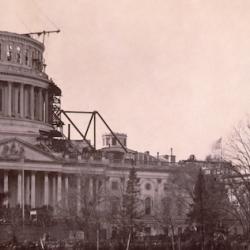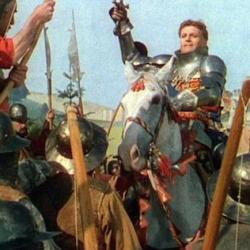How did the American federal government expand its power and reach? World War I is often cited as a turning point, but Christopher Capozzola’s Uncle Sam Wants You shows that this expansion wasn’t just a federal project. New forms of political obligations were enforced by local, unofficial forms of force and by increasingly “mystical” attachment to the nation and State.
Capozzola writes that “Although the experience of war led to new political obligations and repressive state structures, the federal government did not hatch these ideas in smoke-filled Washington rooms and impose them on unwilling citizens. Some political leaders were ambitious state-builders, but most did not sit around wishing they could make the state larger; many, in fact, were quite reluctant to do so” (11).
American was a site of “multiple political cultures,” and these cultivated forms of political attachment that were “in close accord with, and sometimes even in excess of, federal war aims. Locally constituted political authorities then used a variety of forms—both old and new, local and federal—to see to it that those obligations were fulfilled, responding to the state’s mobilization demands in one moment, calling on the state to expand its power the next. Atavistic violence coexisted with innovative repressions; a continuum of coercion ranged from gossip to flag wrapping to lynching, from the quiet discipline of bureaucratic record-keeping or postal censorship to the state-sanctioned torture of conscientious objectors” (12).
Randolph Bourne noted the “improvizational” character of the political changes that were going on. Bourne’s posthumously published essay on “The State” has frequently been reduced to its memorable maxim that ‘war is the health of the state’ and used to support the idea that war builds up the authority of bureaucratic institutions—which, often, it does. But Bourne meant something much more. In his essay, he distinguished ‘Government,’ which he called ‘a framework of the administration of laws, and the carrying out of the public force . . . in the hands of definite, concrete, fallible men,’ from the ‘State,’ which was both more pervasive and evasive than any existing institution. ‘That the State is a mystical conception is something that must never be forgotten,’ Bourne insisted. ‘Its glamor and its significance linger behind the framework of Government and direct its activities'” (12).
But mysticism wasn’t enough to ensure attachment to a distant, invisible State. It was enforced with violence: “As self-appointed home guards wandered America’s streets, terrorizing African-American sharecroppers in the Mississippi Delta, rounding up striking copper miners in Arizona, and boarding up Lutheran churches in small Midwestern towns, one thing was clear: the state did not hold a monopoly on the legitimate use of physical force. In a political culture of voluntarism locked in battle with an autocratic enemy, the state’s legitimacy—its right to speak for the nation—depended not on the monopolization of legitimate violence but on its proliferation. And as every flag-wrapped shopgirl knew, the state was no less powerful for that fact. What the war did do, however, was prompt a struggle over that monopoly. It was a battle that would give new vitality to the language of rights, and would also give even more energy to the emergence of a powerful—if more latent and noiseless—state” (13).












